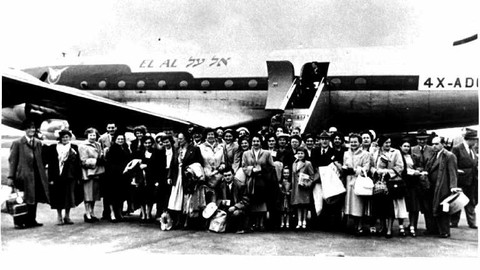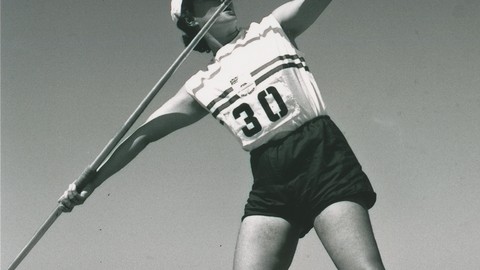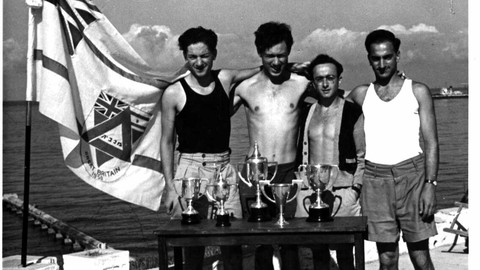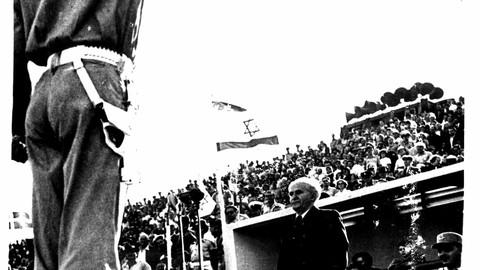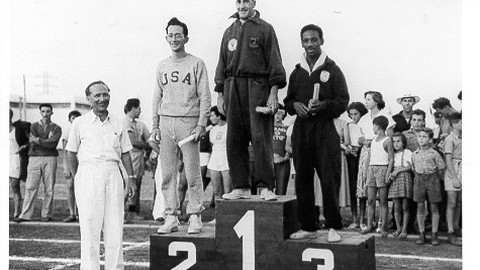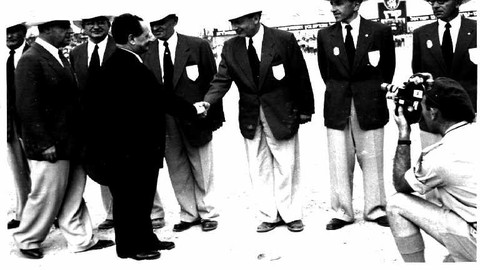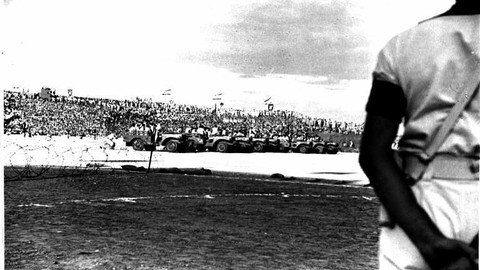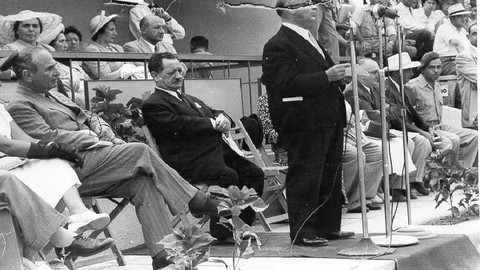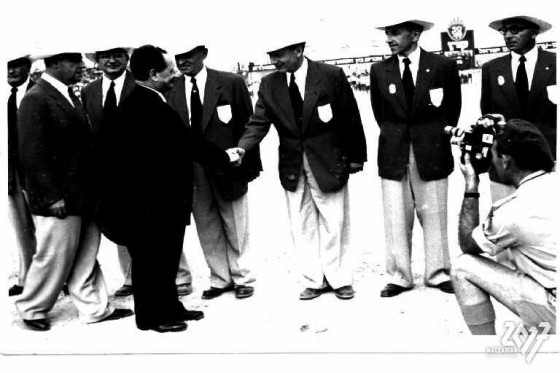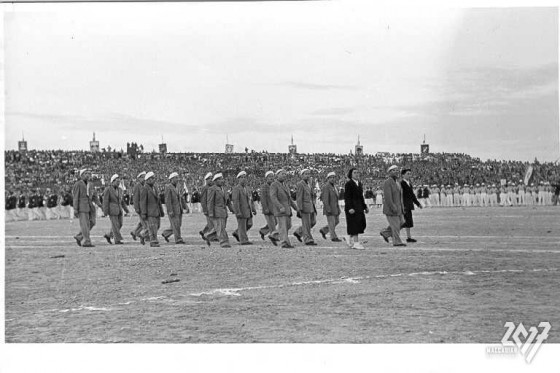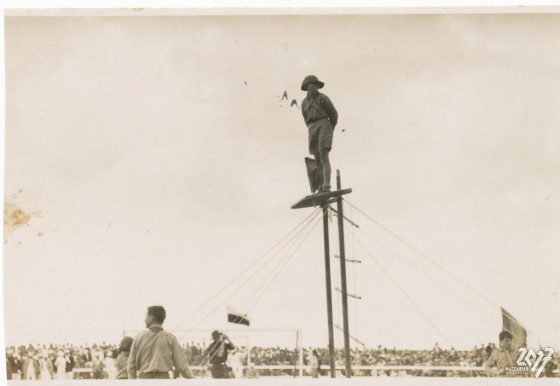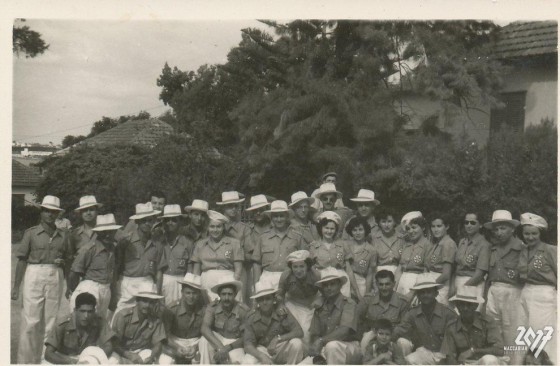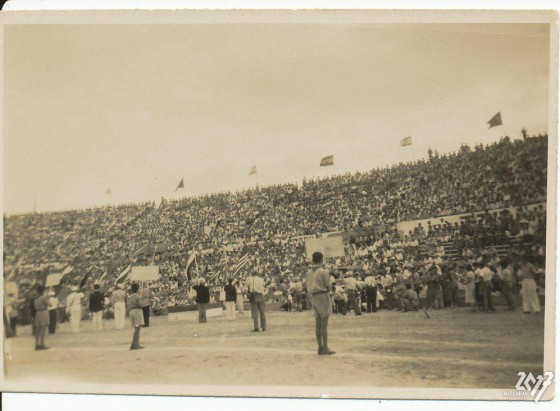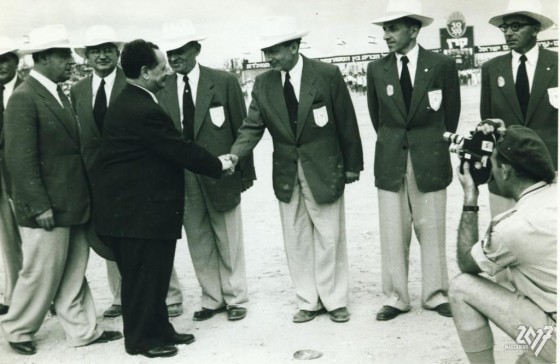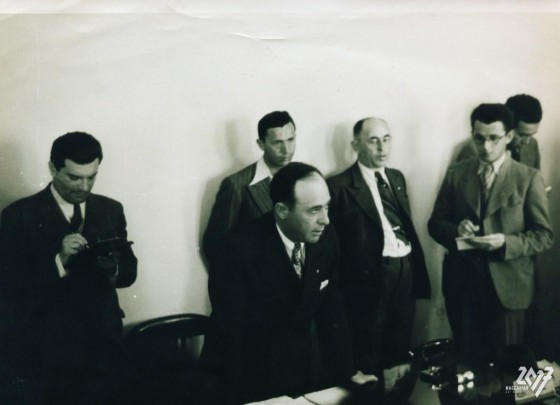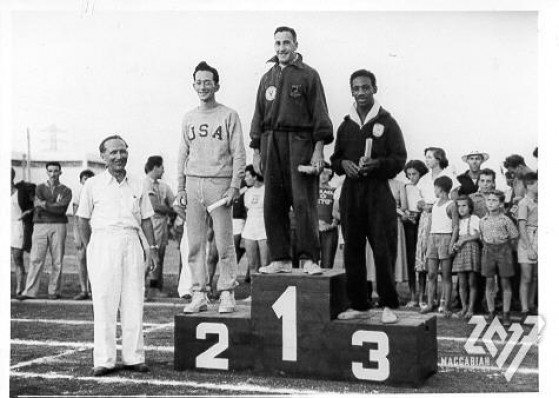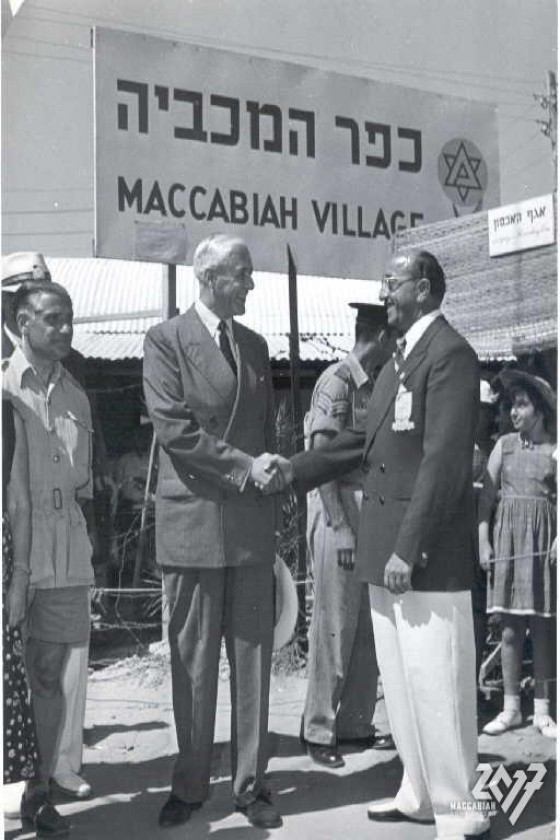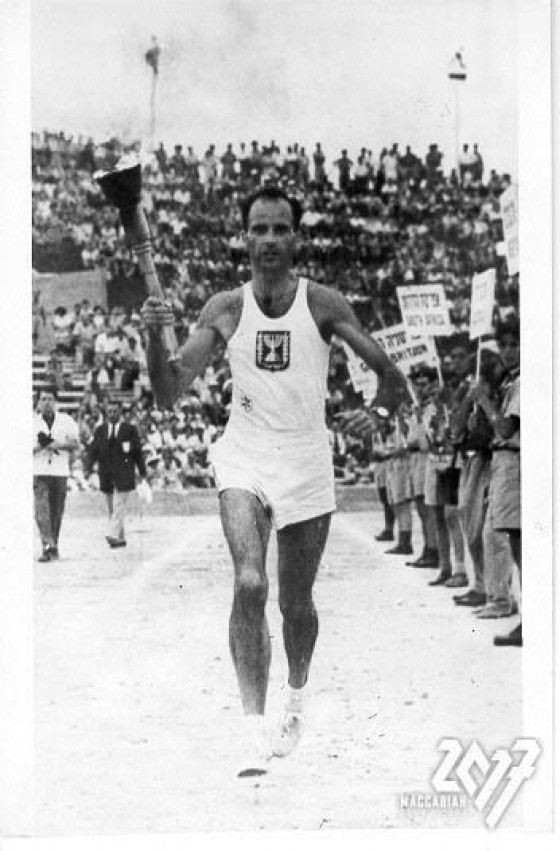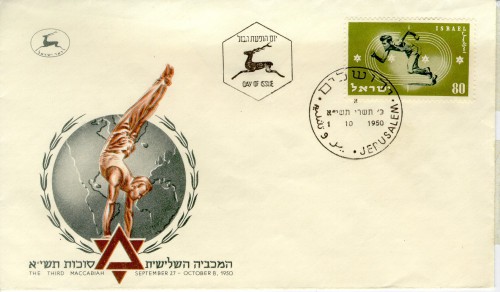The Maccabiah That Never Was
The Third Maccabiah, the first in the State of Israel, was held in 1950, twelve years after the Second. It had been planned in detail as 1938 drew near. The ongoing crisis in Europe brought about the rise of Nazism and Fascism, Arab violence in Eretz Israel (the riots of 1936-1938) and British fears that the proposed Maccabiah would add substantially to the number of ׂillegals׃ in Eretz Israel -- all these contributed to the cancellation of the games. With only four members present, the Maccabiah Secretariat decided not to hold the games as scheduled.
The outbreak of World War II thwarted any attempt to revive the games in the coming years. Entire communities were destroyed in the War and the devastating Holocaust which followed in its wake. Millions of Jews perished at the hands of the Nazis, among them many members of the Maccabi Movement.
In 1939 the British Government, headed by Chamberlain had published the White Paper, curtailing Jewish immigration to Eretz Israel and severely limiting Jewish land purchases. Despite this, when the Jewish community in Eretz Israel was called upon to enlist in the British Army, many Maccabi members answered the call and served in the Maccabi Company.
Only after the declaration of the State, the departure of the red berets British paratroopers and the conclusion of the War of Independence did the 10th World Congress of the Maccabi World Union decide to resume the grand undertaking which had been cancelled under such tragic circumstances. Twelve years later, the Maccabiot were revived in Eretz Israel, this time on the soil of the free State of Israel.
The Third Maccabiah: 5711
When the Third Maccabiah was held in Succot 1950, the cannons of the War of Independence had hardly been silenced. The enormous changes that had occurred in the Jewish world during the previous decade were immediately apparent. Strangest of all was the thundering absence of athletes from Eastern Europe and the Arab lands. Jews from countries which had sent the largest and most outstanding delegations to the First and Second Maccabiot were trapped behind the Iron Curtain. This Maccabiah bore witness not only to the destruction of the best of Polish, Czech, German, Hungarian and Romanian Jewish youth and the transfer of the center of gravity from Central and Eastern Europe to the English-speaking world and South America, but also to the beginning of our redemption. For this was the first Maccabiah held in the independent State of Israel. For the first time, the organizers were free to act as they wished without having to fear the opposition of the occupying power or the Arab reaction.
Approximately 800 athletes from 20 countries participated in 17 competitive events. Countries such as Canada, Argentina, Australia, India, Ireland, Finland and Sweden appeared for the first time. Handball and basketball reappeared on the list of events, whereas rowing, table tennis, and sharpshooting were eliminated to be reinstated in subsequent Maccabiot.
For the first time, the organizers decided to accommodate all the participants in one compound, on the pattern of the Olympic Games. They chose a recreation camp on the Tel Aviv seashore opposite Nordau Street which had formerly been a British army camp. The men and women were housed in tents, ten in each. A national Olympic stadium, Maccabiah Stadium, had been erected in Ramat Gan. Even the Israeli Government was swept into the all out effort, contributing 25,000 Israeli pounds.
The Chairman of the Knesset, Yosef Shprinzak, attended the opening ceremony in place of President Chaim Weizman who had taken ill. Four cannons placed in the four corners of the stadium roared simultaneously, symbolizing the revival of the State and Yizkor was chanted in memory of the millions who perished in the Holocaust. That year Jerusalem was proclaimed the capital of Israel and the Knesset passed the Law of Return, permitting every Jew to immigrate to Israel and become a citizen. 170,000 Jews availed themselves of the opportunity, most of
them from North Africa. Due to the lack of facilities, many of them were housed in tent cities. That year, the Maccabi World Union also made an important decision: to open the games to all Jewish athletes including members of Hapoel. (Maccabiot were formerly open only to Maccabi members.)
Several of the outstanding athletes at the Third Maccabiah were destined to be Israeli sport stars in the 60s: soccer player Eliezer Shpiegel of the Israeli all-star team and father of Giora Shpiegel, the future soccer player for Maccabi Tel Aviv; Frieda Bearson Lichtbau, Gold Medal winner for the discus throw and mother of Aviv Lichtbau, future track and field competitor and all-star women's basketball player; tennis player Edith Cohen Mintz, mother of Tanchum Cohen Mintz, a future member of the Maccabi
Tel Aviv basketball team and grandmother of Uri Cohen Mintz who now plays basketball for Maccabi Ramat Gan and the Israeli all-star team. The outstanding foreign sportsman was heavyweight wrestler Henry Wittenberg, Gold Medal winner in the London 1948 Olympics.
Notable Athlethes and Sports Achievements
- Eliezer Shpiegel, Israeli soccer star of the 1960s and the father of Giora Shpiegel, the future soccer player for Maccabi Tel Aviv;
- Frieda Bearson Lichtbau, Gold Medal winner for the discus throw and mother of Aviv Lichtbau, future track and field competitor and all-star women’s basketball player;
- Tennis player Edith Cohen Mintz, mother of Tanchum Cohen Mintz, a future member of the Maccabi Tel Aviv basketball team and grandmother of Uri Cohen Mintz who now plays basketball for Maccabi Ramat Gan and the Israeli all-star team.
- Wrestler Henry Wittenberg, Gold Medal winner in the London 1948 Olympics.
Joining the Party: Countries who participated for the first time
- Canada
- Argentina
- Australia
- India
- Ireland
- Finland
- Sweden
Say Hello: New Sports Competition
- Handball
- Basketball
Saying Goodbye: Categories From Previous Maccabiot That Were Left Out
- Rowing
- Table tennis
- Sharpshooting


